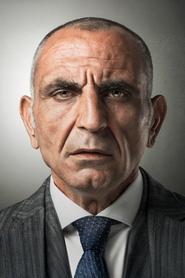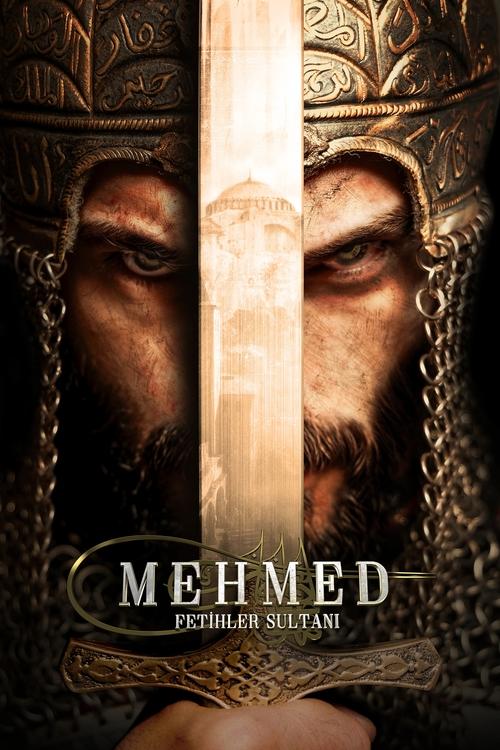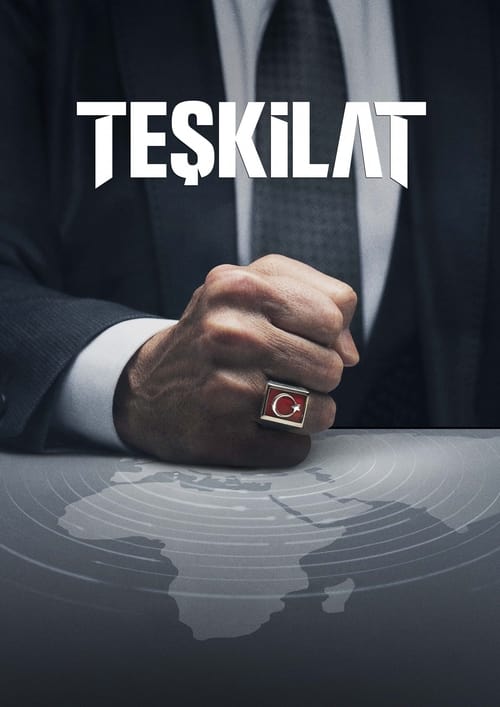
Ask Your Own Question
What is the plot?
In the opening scene of Episode 7, the tension is palpable as the Seljuk forces prepare for a confrontation with the Byzantine army. The camera pans over the rugged terrain, highlighting the strategic positioning of both armies. Sultan Melik Shah is seen rallying his troops, instilling a sense of determination and courage among them. His internal struggle is evident as he grapples with the weight of leadership and the responsibility for his men's lives.
As the battle begins, the Seljuk soldiers charge forward, clashing with the Byzantine forces. The sound of swords clashing and the cries of warriors fill the air. Melik Shah fights valiantly, showcasing his prowess on the battlefield. Amidst the chaos, he spots a familiar face among the enemy ranks--his old rival, the Byzantine commander. This recognition fuels his resolve, and he pushes forward, determined to confront him.
Meanwhile, back at the Seljuk camp, the women and children are in a state of anxiety. Terken Hatun, Melik Shah's wife, is shown pacing nervously, her face a mask of worry. She is deeply concerned for her husband's safety and the fate of their people. Her internal conflict is highlighted as she struggles between her role as a leader's wife and her desire to protect her family.
The battle rages on, and the Seljuks begin to gain the upper hand. However, a sudden ambush from a hidden contingent of Byzantine soldiers turns the tide. The Seljuk forces are caught off guard, and chaos ensues. Melik Shah, realizing the dire situation, calls for a strategic retreat, but not before he faces off against the Byzantine commander. Their duel is intense, filled with raw emotion and a history of rivalry. Just as Melik Shah seems to gain the upper hand, he is forced to withdraw to save his men.
In the aftermath of the battle, the Seljuk camp is filled with wounded soldiers and a somber atmosphere. Melik Shah returns, visibly shaken by the loss of life and the near defeat. He meets with his generals to discuss the next steps, revealing his determination to regroup and strategize for future confrontations. His leadership is tested as he must balance the morale of his troops with the harsh realities of war.
Meanwhile, Terken Hatun takes matters into her own hands. She gathers the women of the camp and organizes a support effort for the wounded soldiers. Her fierce determination shines through as she motivates the women to contribute in any way they can, showcasing her strength and resilience in the face of adversity.
As night falls, Melik Shah reflects on the day's events, haunted by the faces of the fallen. He confides in his trusted advisor, expressing his fears about the future and the burden of leadership. This moment of vulnerability reveals his internal struggles and the weight of his responsibilities.
The episode concludes with a cliffhanger as a messenger arrives with news of a potential alliance forming against the Seljuks. Melik Shah's expression hardens as he realizes the stakes have just been raised, setting the stage for the challenges that lie ahead. The screen fades to black, leaving viewers on the edge of their seats, eager to see how the Seljuks will navigate the treacherous political landscape.
What is the ending?
In the ending of "The Great Seljuks," Season 1, Episode 7, the tension culminates as the characters face the consequences of their actions. The episode concludes with a significant confrontation that leads to a pivotal moment for the Seljuk Empire, showcasing the struggles for power and loyalty among the characters.
As the episode unfolds, we see the aftermath of the previous conflicts. The Seljuk forces are in a precarious position, and the stakes are higher than ever. The episode opens with a tense atmosphere, as the characters grapple with their decisions and the looming threat of betrayal.
Scene 1: The episode begins with a somber mood in the Seljuk camp. The leaders gather to discuss their next move after recent skirmishes. The weight of leadership is evident on their faces, particularly on the character of Sultan Melik Shah, who feels the burden of his responsibilities. His internal conflict is palpable as he contemplates the loyalty of those around him.
Scene 2: Meanwhile, the character of Nizam al-Mulk is seen strategizing with his advisors. His determination to maintain stability within the empire drives him to make difficult choices. He is aware of the growing dissent among the ranks and is focused on quelling any potential uprisings. His resolve is tested as he faces opposition from those who question his authority.
Scene 3: The tension escalates when a rival faction makes a bold move against the Seljuks. The scene shifts to a dramatic confrontation where the Seljuk forces must defend their territory. The battle is intense, with vivid imagery of clashing swords and the cries of warriors echoing in the air. The stakes are high, and the outcome will determine the future of the empire.
Scene 4: Amidst the chaos, personal conflicts come to a head. Characters who were once allies find themselves at odds, revealing deep-seated betrayals and shifting loyalties. The emotional turmoil is evident as friendships are tested, and the characters must confront their true motivations.
Scene 5: As the battle rages on, Sultan Melik Shah makes a crucial decision that could change the course of the conflict. He rallies his troops, inspiring them with a passionate speech that highlights the importance of unity and strength. His leadership shines through, and the soldiers respond with renewed vigor.
Scene 6: The climax of the episode occurs when a key character faces a moment of reckoning. In a heart-wrenching scene, a betrayal is revealed, leading to a tragic outcome for one of the main characters. The emotional weight of this moment resonates deeply, showcasing the personal costs of power struggles.
Scene 7: The episode concludes with the aftermath of the battle. The Seljuks emerge victorious, but at a great cost. The surviving characters are left to grapple with their losses and the implications of their choices. Sultan Melik Shah stands amidst the ruins, reflecting on the sacrifices made and the uncertain future that lies ahead for the empire.
In summary, the fates of the main characters are intertwined with the larger narrative of power and loyalty. Sultan Melik Shah emerges as a leader, but the scars of betrayal and loss linger. Nizam al-Mulk's strategic mind is both a strength and a source of conflict, as he navigates the treacherous waters of loyalty. The episode ends on a note of uncertainty, leaving the audience to ponder the complexities of leadership and the sacrifices made in the name of power.
Is there a post-credit scene?
In "The Great Seljuks," Season 1, Episode 7, there is no post-credit scene. The episode concludes without any additional scenes or content after the credits roll. The focus remains on the main narrative and character developments throughout the episode, wrapping up the story arcs presented without extending into a post-credit sequence.
What significant event occurs between the Seljuks and the Byzantines in Episode 7?
In Episode 7, a pivotal confrontation takes place between the Seljuks and the Byzantines, highlighting the escalating tensions and the strategic maneuvers of both sides. The Seljuks, under the leadership of their commanders, prepare for a decisive battle that could alter the power dynamics in the region.
How does the character of Sultan Melikshah evolve in this episode?
Sultan Melikshah's character in Episode 7 showcases his growing resolve and determination to unify the Seljuk Empire. He grapples with the pressures of leadership and the weight of his decisions, revealing his internal conflict as he balances personal ambition with the needs of his people.
What role does the character of Nizam al-Mulk play in the events of Episode 7?
Nizam al-Mulk plays a crucial role in Episode 7 as he navigates the political landscape, advising Sultan Melikshah on matters of state and strategy. His wisdom and experience are put to the test as he faces opposition from rival factions, showcasing his loyalty and commitment to the Seljuk cause.
How does the relationship between the characters of Tapar and his father Melikshah develop in this episode?
In Episode 7, the relationship between Tapar and Melikshah is strained as Tapar seeks to prove himself worthy of his father's legacy. Their interactions are filled with tension, as Tapar struggles with feelings of inadequacy and the desire for his father's approval, leading to emotional confrontations that reveal their complex familial bond.
What challenges does the character of Terken face in Episode 7?
Terken faces significant challenges in Episode 7 as she navigates the treacherous political landscape of the Seljuk court. Her ambitions and desires for power clash with the realities of her position, leading her to make difficult choices that test her loyalty and cunning, ultimately shaping her character's trajectory in the unfolding drama.
Is this family friendly?
"The Great Seljuks," season 1, episode 7, contains several elements that may not be suitable for children or sensitive viewers. Here are some potentially objectionable aspects:
-
Violence: The episode features scenes of battle and conflict, including sword fighting and injuries, which may be intense for younger audiences.
-
Death: There are moments that depict the consequences of war, including the death of characters, which can be emotionally heavy.
-
Political Intrigue: The themes of betrayal and manipulation may be complex and unsettling for younger viewers to understand.
-
Emotional Turmoil: Characters experience significant emotional distress, including grief and anger, which may be intense for sensitive viewers.
-
Mature Themes: The episode explores themes of loyalty, power struggles, and moral dilemmas that may not be appropriate for all children.
These elements contribute to a narrative that is more suited for a mature audience.





























































